EP 642 Can Tech Creators Really Control the Content on Their Platforms?
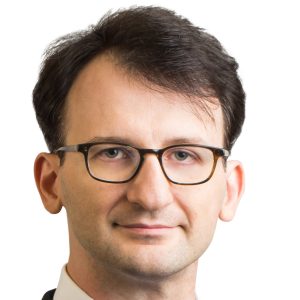 Our guest, David Auerbach has coined the term that is the title of his book, “Meganets”. The scope of various social networks and interactive platforms has grown to such a proportion because of the sophistication of the technology and the abundant use by individuals that it is creating an autonomous digital force, as uncontrollable as the weather, and is transforming lives,society, culture and politics. Implicit in this description is the notion that no matter how many times tech execs are hauled in front of Congress or new regulations written to moderate content, the most startling fact is that there is no hand on the tiller of some of the largest global digital forces that influence our lives. This includes Facebook, Amazon, Google,Instagram and others. In effect, Auerbach argues that these companies have a created a Frankenstein. He’ll explain on this podcast.
Our guest, David Auerbach has coined the term that is the title of his book, “Meganets”. The scope of various social networks and interactive platforms has grown to such a proportion because of the sophistication of the technology and the abundant use by individuals that it is creating an autonomous digital force, as uncontrollable as the weather, and is transforming lives,society, culture and politics. Implicit in this description is the notion that no matter how many times tech execs are hauled in front of Congress or new regulations written to moderate content, the most startling fact is that there is no hand on the tiller of some of the largest global digital forces that influence our lives. This includes Facebook, Amazon, Google,Instagram and others. In effect, Auerbach argues that these companies have a created a Frankenstein. He’ll explain on this podcast.
Podcast: Play in new window | Download
 For more than a century the go to move of governments facing a financial crisis has been the implementation of austerity policies, like cutting wages, decreasing spending on social programs and public benefits as the answer to restoring fiscal health. We’re in such a period now in America where we are pursuing monetary belt tightening to deal with inflation and fiscal austerity is put forward to insure an increase in the nation’s debt ceiling. Our guest, political economist, Clara Mattei, in her book “The Capital Order” posits a provocative thesis that solvency has never been austerity’s goal, but rather it is used to keep sending the spoils of capitalist societies to the makers and entrepreneurs to the detriment of the workers. As our wealth and income inequality grow even more, it’s worth listening to her rarely espoused point of view by either party’s leadership or by the economic brain trusts with whom they surround themselves.
For more than a century the go to move of governments facing a financial crisis has been the implementation of austerity policies, like cutting wages, decreasing spending on social programs and public benefits as the answer to restoring fiscal health. We’re in such a period now in America where we are pursuing monetary belt tightening to deal with inflation and fiscal austerity is put forward to insure an increase in the nation’s debt ceiling. Our guest, political economist, Clara Mattei, in her book “The Capital Order” posits a provocative thesis that solvency has never been austerity’s goal, but rather it is used to keep sending the spoils of capitalist societies to the makers and entrepreneurs to the detriment of the workers. As our wealth and income inequality grow even more, it’s worth listening to her rarely espoused point of view by either party’s leadership or by the economic brain trusts with whom they surround themselves.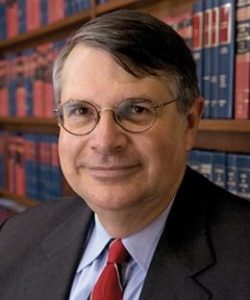 The Constitution clearly states that Congress shall write our laws. But as the federal government grew larger and more complex, executive branch agencies were given more authority to bring greater definition to Congressional intent because of their expertise in a particular area. Even more power has shifted to those agencies as Congress fails to keep up with the challenges of a modern society. Clearly, courts remain arbiters of whether those same agencies have overstepped the Congressional authority granted to them. Since the Supreme Court’s 1984 decision in what is called the Chevron case, judicial review has been highly deferential and courts are left to uphold agency interpretations as long as they are determined to be “reasonable.” But now the Supreme Court is pushing back on the Chevron decision which has been THE most written about, most cited administrative law decision of all time. Columbia Law Professor Thomas Merrill joins us to discuss the influential thoughts he offers about the decision’s future in his book “The Chevron Doctrine: It’s Rise and Fall and the Future of the Administrative State.”
The Constitution clearly states that Congress shall write our laws. But as the federal government grew larger and more complex, executive branch agencies were given more authority to bring greater definition to Congressional intent because of their expertise in a particular area. Even more power has shifted to those agencies as Congress fails to keep up with the challenges of a modern society. Clearly, courts remain arbiters of whether those same agencies have overstepped the Congressional authority granted to them. Since the Supreme Court’s 1984 decision in what is called the Chevron case, judicial review has been highly deferential and courts are left to uphold agency interpretations as long as they are determined to be “reasonable.” But now the Supreme Court is pushing back on the Chevron decision which has been THE most written about, most cited administrative law decision of all time. Columbia Law Professor Thomas Merrill joins us to discuss the influential thoughts he offers about the decision’s future in his book “The Chevron Doctrine: It’s Rise and Fall and the Future of the Administrative State.” With a hot war raging in Ukraine, it is easy to lose sight of a zone of growing tension in the cold ice terrain of the Arctic. American military planners have taken notice of the growing Russian military presence building land bases and launching a string of provocative aerial missions. America is playing catch-up in a climate where it has little experience and capabilities, knowing that the threats of climate change and the Russian dominance of the Arctic demands a more comprehensive strategy. Our guest, journalist Kenneth Rosen explored the activity in the region in a lengthy article online in Politico Magazine. We discussed with him the various challenges for America as it builds its fleet of nuclear-capable icebreakers, ships and submarines, in a region where experts agree any battles in the future will be fought in the air or on water. More importantly, he discusses the need for America to have a more comprehensive strategy, with its Allies, in order to address the growing importance of the Arctic.
With a hot war raging in Ukraine, it is easy to lose sight of a zone of growing tension in the cold ice terrain of the Arctic. American military planners have taken notice of the growing Russian military presence building land bases and launching a string of provocative aerial missions. America is playing catch-up in a climate where it has little experience and capabilities, knowing that the threats of climate change and the Russian dominance of the Arctic demands a more comprehensive strategy. Our guest, journalist Kenneth Rosen explored the activity in the region in a lengthy article online in Politico Magazine. We discussed with him the various challenges for America as it builds its fleet of nuclear-capable icebreakers, ships and submarines, in a region where experts agree any battles in the future will be fought in the air or on water. More importantly, he discusses the need for America to have a more comprehensive strategy, with its Allies, in order to address the growing importance of the Arctic.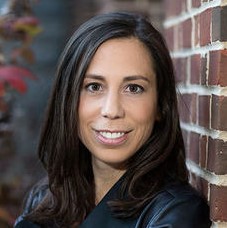 Tik Tok. Huawei. Tencent. Giant Chinese companies have become controversial players in the United States as we try to determine their motives and whether they are just another arm of the Chinese government as they vacuum up incredible amounts of data on American citizens. Data which we willingly provide as we ignore terms of service so we can post another picture or video or interact with our friends. And given the lax regulation of social media companies in America, allowing them to sell our information as a key part of their revenue stream, our data flows like a faucet to China at a moment in time when they are severely restricting the information coming back to us. In her book, “Trafficking Data”, author Aynne Kokas explains how, in her view, China is winning the battle for digital sovereignty as it more broadly defines information that is important to its national security. Beijing is collecting data on people nearly everywhere. Their platforms track people’s preferences and whereabouts, while also giving the Chinese government control over a powerful tool for shaping people’s worldview.
Tik Tok. Huawei. Tencent. Giant Chinese companies have become controversial players in the United States as we try to determine their motives and whether they are just another arm of the Chinese government as they vacuum up incredible amounts of data on American citizens. Data which we willingly provide as we ignore terms of service so we can post another picture or video or interact with our friends. And given the lax regulation of social media companies in America, allowing them to sell our information as a key part of their revenue stream, our data flows like a faucet to China at a moment in time when they are severely restricting the information coming back to us. In her book, “Trafficking Data”, author Aynne Kokas explains how, in her view, China is winning the battle for digital sovereignty as it more broadly defines information that is important to its national security. Beijing is collecting data on people nearly everywhere. Their platforms track people’s preferences and whereabouts, while also giving the Chinese government control over a powerful tool for shaping people’s worldview.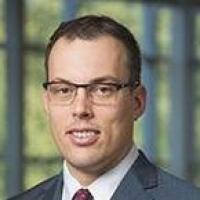 Cryptocurrency has been in the news recently and not in a good way. The chicanery of Sam Bankman-Fried and the FTX Exchange now stands in league with other great financial swindles, like Bernie Madoff’s. There are large questions that need to be addressed both about the economic utility of this relatively new asset class and the role that government oversight should play in the regulation of it. To address those issues and all things cryptocurrency is Lee Reiners, the Policy Director of the Duke Financial Economic Center and a lecturing fellow at Duke University. He explains what cryptocurrency is and why in his mind it has a murky future given that it does not perform the common functions of money, as we know it, and its volatility makes it, indeed, risky business.
Cryptocurrency has been in the news recently and not in a good way. The chicanery of Sam Bankman-Fried and the FTX Exchange now stands in league with other great financial swindles, like Bernie Madoff’s. There are large questions that need to be addressed both about the economic utility of this relatively new asset class and the role that government oversight should play in the regulation of it. To address those issues and all things cryptocurrency is Lee Reiners, the Policy Director of the Duke Financial Economic Center and a lecturing fellow at Duke University. He explains what cryptocurrency is and why in his mind it has a murky future given that it does not perform the common functions of money, as we know it, and its volatility makes it, indeed, risky business. The conventional criticism of the current make up of the U.S. Supreme Court is that it is populated by a majority of rabid right wing partisans, overturning precedents in order to achieve political objectives. And that its decisions are out of step with a majority of Americans. Our guest, Mark Lemley, Professor of Law at Stanford University, has an even more searing critique as he argues that the Supreme Court is making an unprecedented power grab as it takes decision-making away from both other government institutions and individuals and retains authority never before envisioned for itself. Of all the trampling he sees to Congressional authority, administrative agencies of the federal government, and state legislatures, his clearest red flag is the impact this Court is having on lower federal courts and their role in our delicate republic. It’s such an important topic not getting the attention it deserves.
The conventional criticism of the current make up of the U.S. Supreme Court is that it is populated by a majority of rabid right wing partisans, overturning precedents in order to achieve political objectives. And that its decisions are out of step with a majority of Americans. Our guest, Mark Lemley, Professor of Law at Stanford University, has an even more searing critique as he argues that the Supreme Court is making an unprecedented power grab as it takes decision-making away from both other government institutions and individuals and retains authority never before envisioned for itself. Of all the trampling he sees to Congressional authority, administrative agencies of the federal government, and state legislatures, his clearest red flag is the impact this Court is having on lower federal courts and their role in our delicate republic. It’s such an important topic not getting the attention it deserves.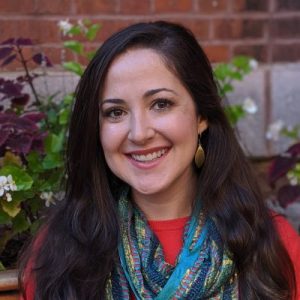 The American public education system, K-12, is plagued with problems at this moment. On the heels of a pandemic that turned teaching from one of the most impactful, personal professions into one in which remote exchanges were dominant, this just begins to scratch the surface. We find an inability to recruit enough qualified college graduates into the teaching profession, stagnant compensation, which certainly contributes to the former, heavier workloads and declining prestige for those who enter the field. According to the National Center for Education Statistics, the number of students graduating from college with bachelor’s degrees in education fell from 176,307 in 1970-71 to 85,058 in 2019-2020. And wages are essentially unchanged from 2000 to 2020 after adjusting for inflation. Matthew Kraft of Brown University and, our guest, Melissa Arnold Lyon of the University at Albany, State University of New York, in their 2022 paper “The Rise and Fall of the Teaching Profession: Prestige, Interest, Preparation, and Satisfaction Over the Last Half Century,” tracked trends on “four interrelated constructs: professional prestige, interest among students, preparation for entry and job satisfaction” over 50 years. She has a conversation with me about their findings.
The American public education system, K-12, is plagued with problems at this moment. On the heels of a pandemic that turned teaching from one of the most impactful, personal professions into one in which remote exchanges were dominant, this just begins to scratch the surface. We find an inability to recruit enough qualified college graduates into the teaching profession, stagnant compensation, which certainly contributes to the former, heavier workloads and declining prestige for those who enter the field. According to the National Center for Education Statistics, the number of students graduating from college with bachelor’s degrees in education fell from 176,307 in 1970-71 to 85,058 in 2019-2020. And wages are essentially unchanged from 2000 to 2020 after adjusting for inflation. Matthew Kraft of Brown University and, our guest, Melissa Arnold Lyon of the University at Albany, State University of New York, in their 2022 paper “The Rise and Fall of the Teaching Profession: Prestige, Interest, Preparation, and Satisfaction Over the Last Half Century,” tracked trends on “four interrelated constructs: professional prestige, interest among students, preparation for entry and job satisfaction” over 50 years. She has a conversation with me about their findings.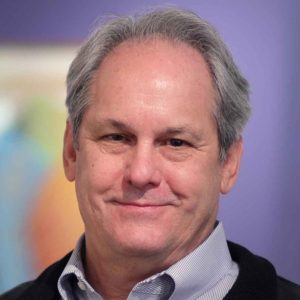 While the community’s shock over what happened in 2012 at Sandy Hook Elementary School can never be erased, the new school built nearby is meant to refocus thoughts to the future and designed to make it less susceptible to anything like it ever happening again. There is no way to harden a school beyond the possibility for an attack, but there are many approaches you can take to minimize the risk, according to Jay Brotman, Managing Partner of Svigals and Partners, the architectural firm in New Haven, Connecticut chosen to rebuild the school. In the podcast, he describes the approaches taken to both secure the facility, but still make it warm and inviting for students and teachers. The philosophy employed, and substantial input gathered from the community incorporated into the new design, is contained in the firm’s paper entitled “Building Safer Schools That Don’t Look Like Prisons”. This is an important conversation as communities address this issue nationwide.
While the community’s shock over what happened in 2012 at Sandy Hook Elementary School can never be erased, the new school built nearby is meant to refocus thoughts to the future and designed to make it less susceptible to anything like it ever happening again. There is no way to harden a school beyond the possibility for an attack, but there are many approaches you can take to minimize the risk, according to Jay Brotman, Managing Partner of Svigals and Partners, the architectural firm in New Haven, Connecticut chosen to rebuild the school. In the podcast, he describes the approaches taken to both secure the facility, but still make it warm and inviting for students and teachers. The philosophy employed, and substantial input gathered from the community incorporated into the new design, is contained in the firm’s paper entitled “Building Safer Schools That Don’t Look Like Prisons”. This is an important conversation as communities address this issue nationwide.